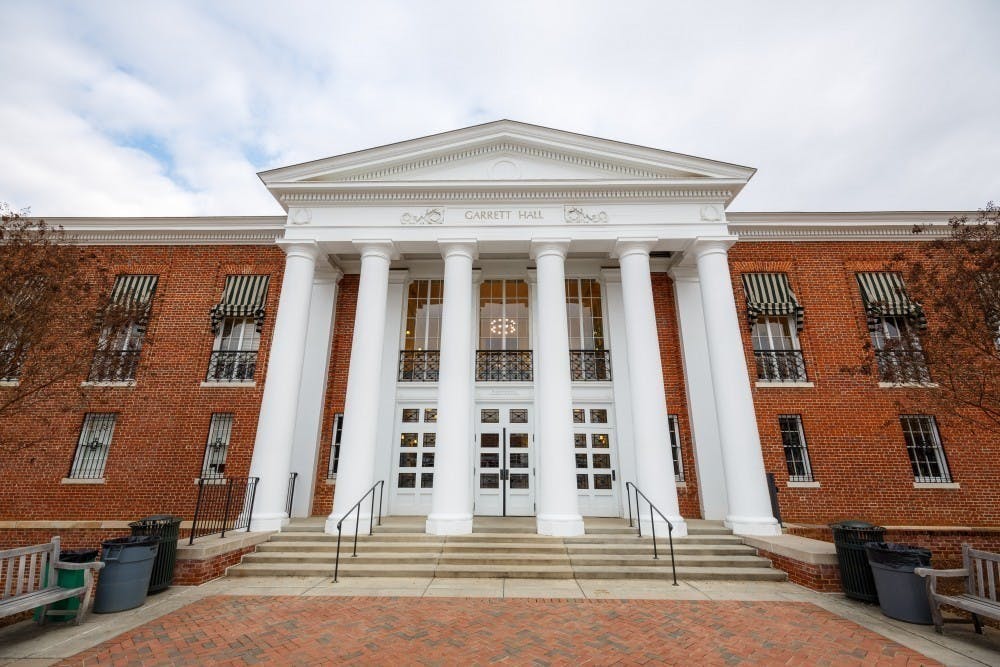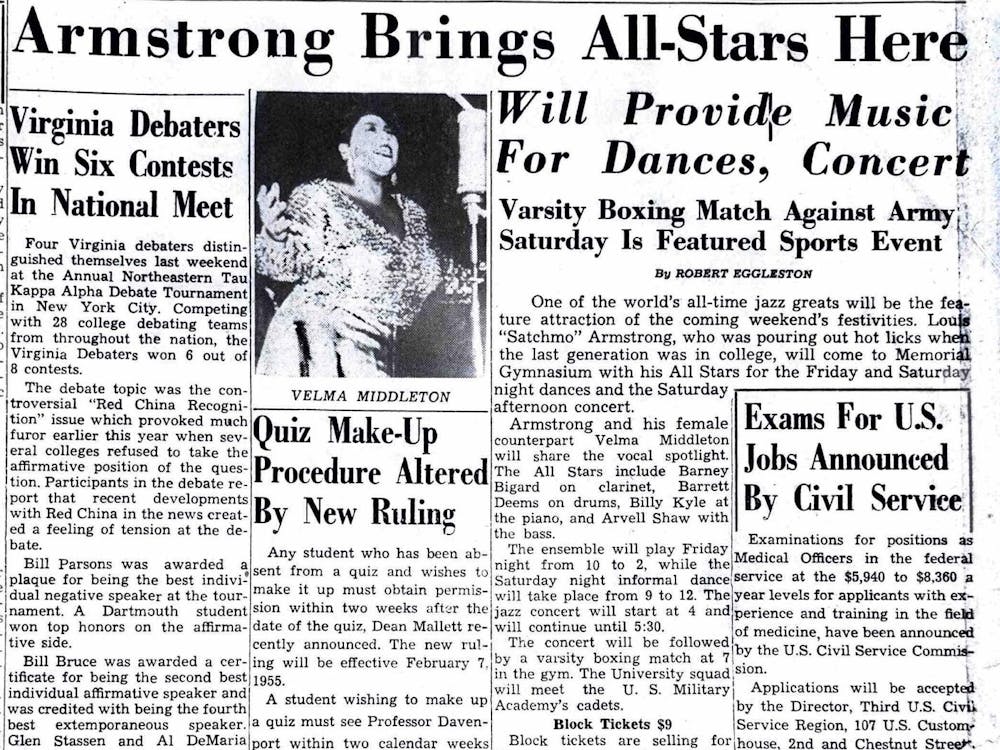The Frank Batten School of Leadership and Public Policy offered admission to 104 candidates of 180 applicants Feb. 28, an acceptance rate of 58 percent, an increase from last year when 42 percent of applicants were offered admission. The McIntire School of Commerce released decisions for its B.S. in Commerce program the same day — the program received a record high of 613 applicants and accepted 61 percent of applicants, for a total of 375 students.
The Batten undergraduate program is a selective program in which students earn a liberal arts degree — a Bachelor of Arts in Public Policy and Leadership — focused on understanding how public policy decisions are made. Batten also offers minors in Public Policy and Leadership and Social Entrepreneurship.
The representation of women in admitted students was roughly consistent with last year, said Ann Mulligan, director of undergraduate admissions for Batten. Women comprised 69 percent of the admitted student pool and 69 percent of the applicant pool. In the Class of 2023 cohort, women made up 71 percent of admitted applicants. The average GPA of admitted students was also comparable to last year’s, with an average GPA of 3.768 representing a range from 3.2 to 4.0.
Due to the preliminary nature of these statistics — the Bachelor’s program will accept applications from direct transfer applicants from outside institutions as well as students on the waitlist — and the small size of the cohort, the Admissions Office was unable to report demographic breakdowns.
The Commerce program is a two-year program that prepares students for careers in business and offers several concentrations to allow students to hone their studies in a specific area. The major offers concentrations in Accounting, Finance, Marketing, Management and Information Technology. Students also have the option to select up to two tracks of study – Business Analytics, Entrepreneurship, Global Business, Quantitative Finance, Strategic Brand Consulting and Communications and Real Estate.
In an email to The Cavalier Daily, Karen Connors, said more information about the demographic breakdown for the cohort will be released once decisions for the cohort are completed. Transfer students applying from different universities will not receive decisions until June.
Last year, 597 students applied to the program, and 63 percent were accepted. Since 2017, the acceptance rate has fluctuated from 66 percent in 2017, to 59 percent in 2018 and 2019 and then shooting back up to 63 percent in 2020 and 2021.
According to Connors, the admissions office took notice of students who were actively engaged in their academics and challenged themselves to prepare for the Commerce program. The Commerce program also considers many factors in applicants beyond academic history, including extracurricular activities and leadership skills.
“Beyond academics, our incoming class includes students who have engaged within and beyond their community through a variety of meaningful activities,” Connors said. “In their engagement, they demonstrated the development of leadership and communication skills, a team orientation, and a high level of emotional intelligence.”
The program has made many efforts to recruit students and provide opportunities for prospective students to learn about the major, Connors said. The Commerce blog provides information about admissions as well as stories from students, faculty and alumni.
“We’ve tried our best to maintain connections and have opportunities for all students to engage with our office even though the pandemic,” Connors said. “We offer walk-in advising, one-on-one advising appointments, information sessions and work to provide many perspectives and insights on our newsletter and blog.”
Connors also emphasized that the Commerce School has worked on many initiatives focused on underrepresented communities in business, including collaborations with the LGBTQ+ Center, Multicultural Student Services and the Office of African American Affairs, along with events focused on attracting women.
Connors expressed her satisfaction with the credentials of the new cohort and the admissions committee’s process of selecting applicants.
“Our applicants once again presented remarkably strong academic credentials,” Connors said. “The Committee considered many factors in its effort to build a well-rounded class that will contribute to and benefit from our educational environment and business community.”
Batten also focused on expanding its recruitment efforts to reach a wider variety of students, using hybrid events and programming to expand information sessions and appointment availability for students.
To increase awareness among underrepresented students about Batten, the Admissions Office partnered with a variety of organizations, including the Office of Admissions, the Office of African American Affairs, the University’s Student Veterans of America, Virginia Athletics, Multicultural Student Services and the Career Center. The office also partnered with Batten student organizations, including Women in Policy, Black Student Leaders in Policy and the Batten Latinx Network.
Second-year student Christian Taylor was recently admitted into the Batten bachelor’s program and said he decided to apply after taking the coursework and being exposed to policy frameworks.
“I really resonated with the motto where policy is everywhere, at least from anywhere, and that’s how I realized [Batten] is something where I could have more of an impact,” Taylor said.
Taylor hopes to use the Batten curriculum and framework to further develop his efforts in social entrepreneurship, including a start-up to connect low-income litigants with legal aid organizations.
Second-year Camille Weinburg underscored her excitement about joining a smaller cohort of students, as well as applying the Batten curriculum to her post-graduate goals to work in humanitarian aid.
“After college, I want to go to the Peace Corps,” Weinburg said. “I want to do something to actually help people … and I felt like [Batten] was a good way to go about that.”
Students were required to accept or decline their offer for Batten by March 11, while students were required to accept or decline offers for the Commerce School by March 7. Decisions for the Batten Minor in Leadership and Public Policy will be released March 25.







